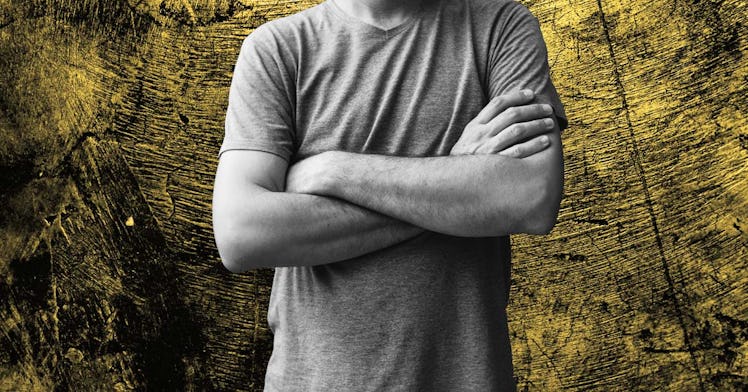Why Men Still Defend Sexual Predators And Fight The #MeToo Movement
This instinct to defend men accused of sexual abuse stems from a desire to protect oneself and maintain power by association.

The men called out by the women associated with the #MeToo movement or even just during the period since #MeToo started trending representative a diverse group of abusers. From Bill Cosby and Harvey Weinstein, who stand accused of rape, to Louis C.K., who stands accused of harassment, to Mario Batali and Brett Kavanaugh, who stand accused of sexual assault, these men have committed a wide variety of alleged crimes in a wide variety of forums. That said, they have each been defended publically by men who they do not know — men who seem determined to prove either their innocence or that their crimes were ultimately innocuous. This is confusing to many people. Why would anyone stand behind these men? Psychologists may have a clean, albeit unnerving, answer: Men seem to think of themselves as a sort of criminal class.
“Men may not have done anything on the level of the offender they support, but they perhaps have committed some smaller version of the same offense and fear that they will be stigmatized or brought to task in the same way,” explains Brooke Sprowl, a family therapist.
The notion that support for sexual offenders, in particular, comes from a paranoid place of seeking justification or absolution for past behaviors is not unique to Sprowl. It’s a common understanding that basically posits men are often unclear on whether or not they have perpetrated offenses against others in the past.
“There are some men who do feel like there is a witch hunt of sorts going on,” psychologist John D. Moore says, adding that many men aren’t totally sure whether or not they are witches. Still, Moore says that not all men who come to the defense of someone accused of sexual crimes are themselves guilty of anything. These sympathetic men may just be uneasy about having a more tenuous position in society — about being held accountable. For these men, seeing a preferred comedian or politician face charges represents a loss of power by association.
“Good men may defend the actions of other men who are wrong because in some way they relate to them or see themselves in their actions,” Sprowl agrees. Whether they agree with the actions or not, they’re worried about the team, or tribe.
Scientists suspect that tribalism, or the tendency to form groups based commonalities such as race or gender as an adaptive strategy for survival. This system allows for members of the same community to help each other, but also to quickly categorize outsiders as threats. It drives peaceful behaviors towards those who are similar and aggressive behaviors towards those who are different. Women and children are responsive to tribalism research shows, but there’s evidence that men are distinctly sensitive to it. Men are more likely to be supportive and protective of members in their group, intolerant of outsiders, and violent towards outgroups, studies suggest.
It’s possible that the #MeToo movement represents a recent threat and could provoke some of this pushback from men who’d never grope a person, masturbate in front of them, or trap them in a room and try to keep them from screaming, but still relate to the men who do on some unconscious level. They’re bound to this particular tribe by more than biological gender, but by the power and privilege they share and are deeply afraid of losing.
“There are huge cultural and societal shifts happening right now that are pushing back against long-standing power structures,” Moore says. “For a lot of people, particularly men who have historically enjoyed privilege in our society, these changes can be very scary.”
However, when people take the time to consider their knee-jerk reactions, data indicates they’re far less likely to succumb to these tribalist tendencies. Plenty of men feel the impulse to side with offenders — to play “devil’s advocate” — but don’t do it. These are the men who have sought to understand their own reactions to a cultural moment and prioritize the interests of society over the preservation of their own privilege.
This article was originally published on